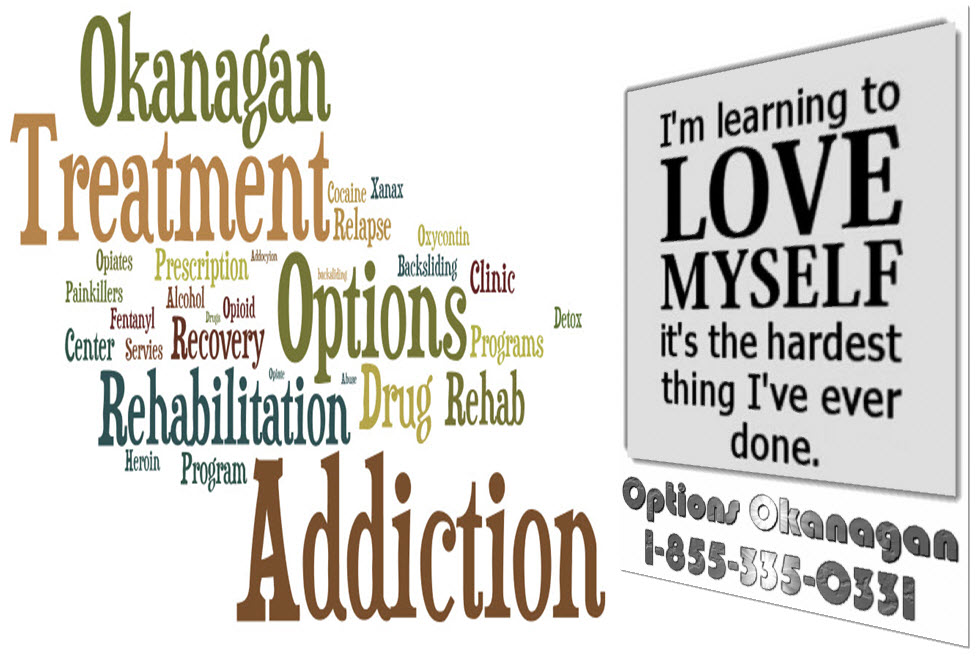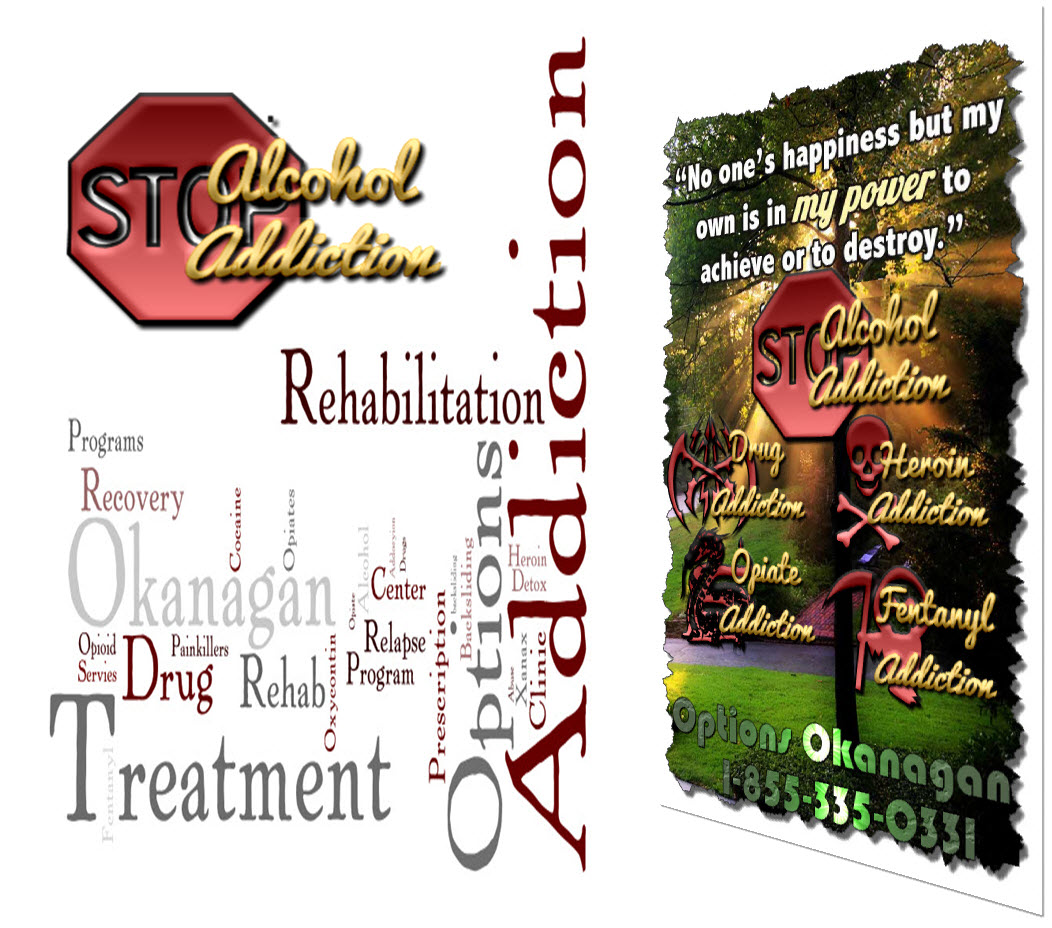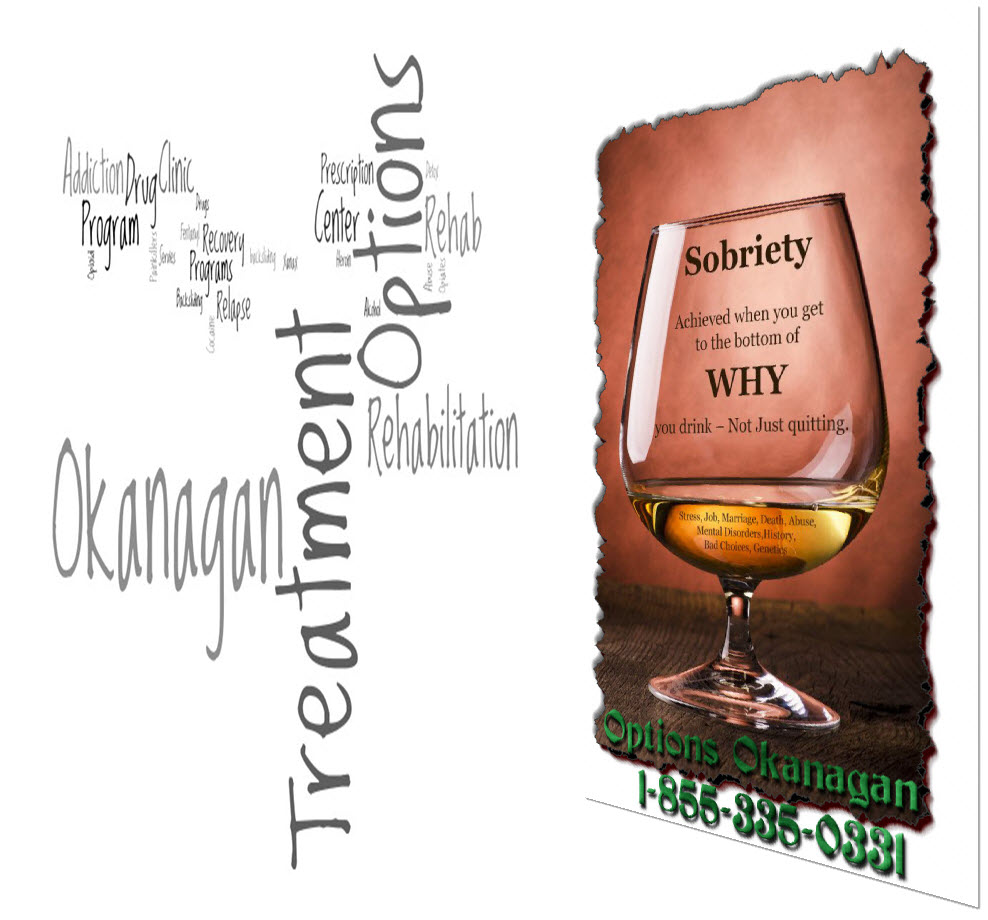How alcohol effects the human body by Options Okanagan Treatment Center in Kelowna, British Columbia treating Opiate and Alcohol addiction and recovery.
Alcohol, and ethanol in particular, is a central system nervous depressant. If excessive quantities are ingested it can have drastic effects on the human body. It causes coma, increased risk for cancer, liver cirrhosis, and even death in some cases. The following will help provide you with a detailed understanding of the various effects that alcohol can have on a human body.
Have you ever wandered the city streets next to the pubs and bars after a late night party on a Saturday? If your answer is yes, then you have undoubtedly run across at least a couple of people stumbling around, unable to speak properly, and claiming that the world is spinning all around them. You just ignore their claims and assume they are a bit drunk. What happens exactly to those people when they drink alcohol? It might be a bit more complicated and dangerous than we may think. The term ‘alcohol’ covers the whole organic compound family, such as isopropanol, ethanol and methanol. However, generally speaking when we are talking about alcohol we mean ‘ethanol,’ which among these chemicals is ingested the most. Ethanol is an organic compound that is comprised of the molecules of Oxygen, Hydrogen and Carbon. It is a very volatile liquid that has a very distinct odor and great affinity for water. Its high solubility when it is in water in fact makes it among the most powerful depressants of the central nervous system in human beings. It is a hypnotic and powerful sedative with various side effects. The extent of its affect on the central nervous system will depend upon the alcohol concentration in the blood, which is usually referred to using the acronym BAC (short for Blood Alcohol Content).
Alcohol Consumption Effects
Distribution And Absorption Mechanism
When alcohol is consumed, the first thing that it does it irritate the mouth’s mucous lining followed by the esophagus. This causes an anesthetic effect. Next it goes into the stomach. Only around 20% of the total amount is absorbed there. The small intestine absorbs the remaining 80% and is then distributed throughout the entire human body. During this process alcohol travels throughout the blood where it comes into contact with nearly every organ’s cells. As previously mentioned, due to the high affinity that it has with water, it is able to penetrate nearly all cellular membranes. This results in all organs absorbing it.
Initial Stage Effects
The effects that alcohol has when it is ingested on the human body gradually changes over time. During the initial stages, an individuals feels cheerful and more relaxed. This is followed by more animated speech and stumbling movements.
A person frequently starts letting go of their inhibitions and becomes more confident. This occurs due to the increased metabolism within the brain’s nigrostriatal pathway, which is associated with movements of the body. Increased alpha waves with the brain make the individuals more relaxed and cheerful, while stimulation to the cortex within the brain’s hippocampus region helps the person lose their inhibitions. The stage is often referred to as ‘euphoria’ and has a BAC of about 0.03 to 0.12%.
Long Term Effects
The enzyme dehydrogenase, which the hepatic cells secretes, converts alcohol into acetaldehyde. The acetaldehyde gets converted further into acetic acid. Then from acetaldehyde dehydrogenase it becomes acetate. Acetate is a type of compound of fats that is locally deposited. The blood is filtered by the liver and it also eliminates toxins out of the body as urine. Due to continuous and chronic consumption of alcohol, the increased levels of fatty acid results in plaque forming within the hepatic capillaries. The situation can result in liver cirrhosis. Since the liver performs the critical role as the body’s filtration mechanism, malfunctioning of the liver frequently leads to hepatitis and jaundice. Antidiuretic hormone secretion is inhibited by alcohol, which results in more urine forming and dehydration.
Although drinking one glass of alcohol per day can help the heart function properly, an excess amount of alcohol affects how it works and it won’t be able to pump the amount of blood that is necessary to various parts of the body. Consuming an excessive amount of alcohol can also affect the endocrine gland functioning. They are responsible for metabolism, tissue function and secreting growth hormones. An excessive amount of alcohol may weaken the immune system as well. Fetal alcohol spectrum disorder can be caused when alcohol is consumed while a woman is pregnant.
Carcinogenic Effects
WHO classified alcohol as Group 1 carcinogens. Despite the fact that previous studies have been unable to establish any direct connection between cancer and alcohol, there are strong indications that suggests that the effect of other kinds of carcinogenic chemicals such as tobacco are enhanced by alcohol. Acetaldehyde, which is the byproduct of alcohol metabolism, becomes concentrated within the body in very high mounts. This can damage the cells DNA. When they react with polyamines they may end up forming mutagenic DNA. Consuming excessive amounts of alcohol increases risk for breast, liver, esophagus, pharynx, larynx and mouth cancer.
Options Okanagan Opiate and Alcohol Treatment Centers in Kelowna, Salmon Arm and Vancouver, British Columbia – Men and Women are recovering and healing from Alcohol and Drug Abuse at our treatment center here in the Okanagan right now.
Our unique and distinctive Opiate Drug and Alcohol treatment program allows men and women to come in from Calgary as well as Edmonton as we offer airport pickup.
Numerous clients come to us from Calgary and Edmonton and other locations in Alberta and even other provinces for Opiate addiction treatment, meth drug treatment, many other drug and alcohol addictions for rehabilitation because of the uniqueness of our treatment center.
Our Treatment Location:
Options Okanagan Opiate and Alcohol Treatment Center
551 Sherrydale Crescent, Kelowna, British Columbia, V1V 2E6
Toll Free Phone Number : 1-855-335-0331




